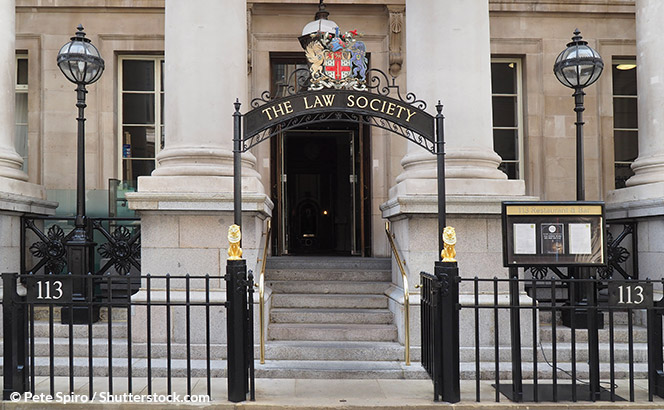The UK legal sector could lose nearly £3bn in turnover growth and have 10,000 fewer jobs by 2025 with a no-deal Brexit, according to forecasts published by the Law Society.
The society’s research unit released a report today (22 August) which predicted the legal sector would grow at an average 2.2% annually from 2019 to 2025 with a soft Brexit. This, however, drops to just 1.5% with a harder Brexit and falls further to 1.1% in a no-deal scenario.
Predicting total sector turnover of about £29bn this year, the soft model forecasts turnover of £33.83bn in 2025, versus £30.86bn with no deal: effectively halving forecast turnover growth.
The society’s research used data and forecasts from the National Institute of Economic and Social Research (NIESR), the Office of National Statistics, and the International Monetary Fund. It then produced three Brexit scenario forecasts in collaboration with Thomson Reuters, which is soon releasing a report with Oxford Economics on the implications of Brexit for the legal sector.
The society’s soft Brexit scenario was based on the NIESR’s forecasts, while the harder Brexit deal used a Canada-style free trade agreement. The no-deal outcome was based on Britain reverting to World Trade Organisation (WTO) rules.
Law Society president Christina Blacklaws conceded the lack of agreement on Brexit negotiations and volatile global markets meant it was ‘standing on thin ice’ publishing forecasts. But the society said it intends to regularly review the figures and consider further Brexit scenarios ahead of Britain’s scheduled March 2019 exit from the European Union.
‘Our intention is to provide projections that are useful to the sector, to business and government as they steer a course for the years ahead,’ she said.
The report estimates turnover for the legal sector will be relatively buoyant from 2017 to 2020 because of work relating to regulatory changes from Brexit, an uptick in work for law firms from UK businesses, and increased work from international clients following a sharp depreciation in the pound.
But beyond 2020 it anticipates turnover growth will slow because of a weaker UK economy, slower growth in legal services exports, and a slowdown in the housing market. Legal sector turnover growth would be higher than overall economic growth, however, in part because of continuing regulatory work.
The models also expect employment in the sector to fall, based on both slower growth and the increasing adoption of new technology and working methods. Total full-time employment is predicted to fall to 283,000 in 2025 from 293,000 in 2015 under a soft Brexit, or closer to 274,000 with no deal.
Blacklaws added: ‘UK legal services look to have been relatively buoyant through 2017-18, thanks to a combination of Brexit-related work, steady demand from UK businesses and an uptick in business from non-UK clients taking advantage of the depreciation of the pound. However, Brexit is likely to have a significant negative effect on the legal sector in the medium and longer term.’












